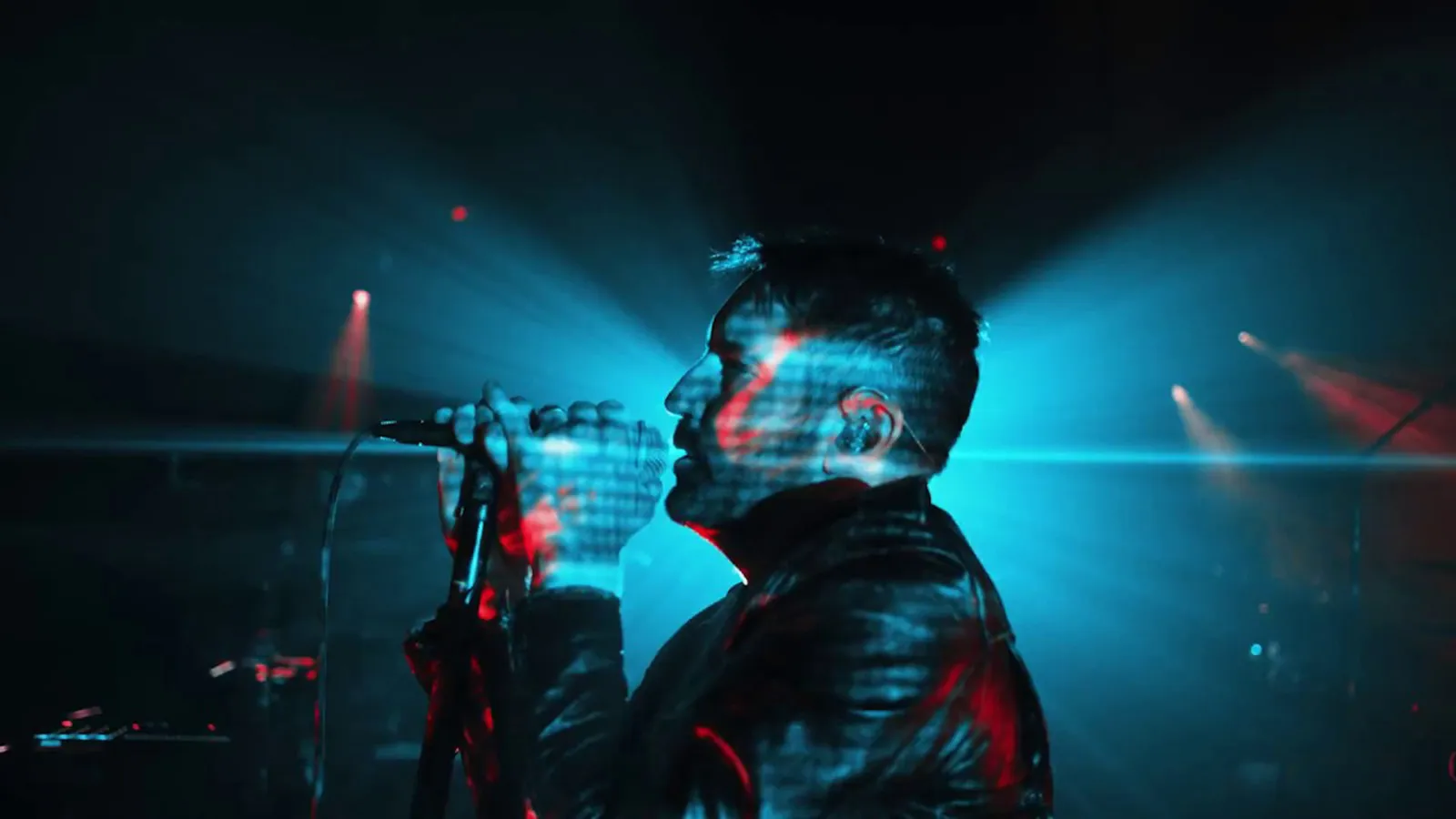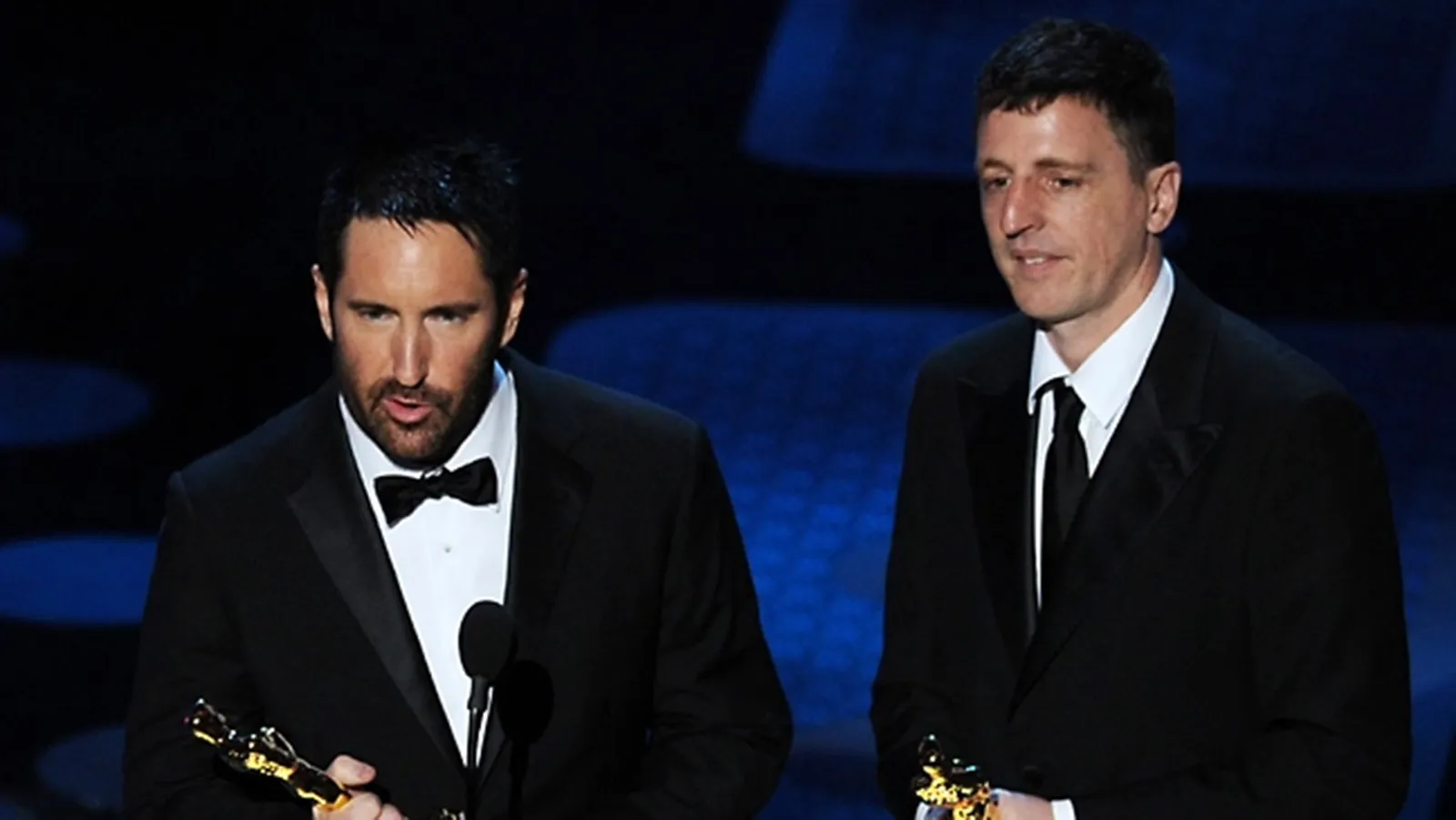How Secret Superhero Trent Reznor Became Hollywood’s Most Surprising Composer
The remarkable career of Trent Reznor has to rank as one of the most improbable tales in modern music. Although he won his first major award - a Grammy - in 1992, his reputation as a chaotic, angst-ridden musician and astonishingly aggressive live performer, with a penchant for loudly criticizing the music industry, made it seem highly unlikely that he would be winning many more awards. He’s now one of the most celebrated soundtrack composers in Hollywood, with a trophy cabinet stuffed with Oscars, Emmys, and Golden Globes, which stand as a testament to the incredible versatility of this Secret Superhero.

MUSIC IS NOT COOL
Trent was born in 1965, and grew up in the small town of Mercer, Pennsylvania. His parents were teenagers when he was born, and divorced when he was just six years old, after which Trent spent most of his childhood living with his maternal grandfather, Bill Clark. While Trent has subsequently spoken at length about the alienation he felt living in a small rural town, Bill has only kind words to say about his charge, describing him as a happy child who loved to skateboard and build model planes, as well as play the piano.
"The brand new social experience where you activate your gaming skills as you train like a spy."
- TimeOut
Take on thrilling, high-energy espionage challenges across different game zones.

Trent took to the piano at the age of 12 and quickly displayed a remarkable aptitude for the instrument. His father was also an amateur musician who sometimes worked in a music shop in Mercer, and was able to provide his son with instruments and tuition. While Trent developed as a musician quickly it did not confer any social status to him with his contemporaries; as he later described it, “it wasn’t cool to play music where I was from. You had to be an athlete”. Trent had no ambitions in this area, and although his family were hoping that he would pursue his emerging talent and eventually become a concert pianist, Trent had other ideas that did not involve practicing piano for ten hours a day: “I had just discovered Kiss, so that was out of the question. I knew I wasn’t going to get laid studying piano with a nun”.
Trent graduated high school and left Mercer for college, where he still struggled to fit in socially, but made more progress with his musical ambitions. His education also took a back seat as he focused on gigging, and he even calibrated his class schedule so that he was only required to attend college two days a week, allowing him to travel further afield for gigs. Eventually, he took the decision to abandon college entirely and try to find a job in the music industry, and ended up in Cleveland.
A BRIEF CAREER IN MOVIES
Trent secured himself a job as an assistant at a local recording studio, Right Track, and immediately endeared himself to the studio’s owner, Bart Koster, with his commitment to the work. Koster gave Reznor free use of the studio when it wasn’t booked, later telling journalists “how could I possibly stand in this guy’s way? It wasn’t costing me anything, just a little wear on my tape heads”.
While working on his own material, Trent continued to play with local bands, which led to his only appearance in a movie to date, in the 1987 Michael J. Fox film Light Of Day. Trent and his bandmates were cast as a bar band simply because they were the only group in close proximity to the film’s set who could provide their own instruments, and Trent appears in a scene playing keyboards on a synth-pop cover of a Buddy Holly song. This brief brush with the silver screen did nothing to distract the single-minded Reznor from his main goal, and his demo tapes at the studio were improving. He gathered together a band and began touring his material under the name Nine Inch Nails, which ultimately led to a record contract with a small New York label, TVT Records. It would not be a happy partnership.
TRENT VS THE MUSIC INDUSTRY
Things started extremely well. The band’s debut album, 1989’s Pretty Hate Machine, was a tremendous success. It fused the heavy, industrial sounds of groups like Ministry and Skinny Puppy with dance beats, and although it did not trouble the upper ends of the album charts its popularity grew through word of mouth, and ended up becoming the most commercially successful industrial album to date. Unfortunately, this success led to extreme conflict between Reznor and TVT Records, with Reznor making numerous allegations of unfair business practices and label interference in his creative freedoms. Reznor refused to record another album for TVT, and legal action began.

This had an unusual impact on Nine Inch Nails. In order to sustain his legal fees, Trent toured with the band constantly for two years, and over that period the group developed a reputation as one of the most uncompromising - and frequently terrifying - live acts on the planet. This was largely driven by Reznor’s fury at TVT, and manifested itself in a largely choreographed onstage anarchy where Trent would attack his other band members, himself and the audience with everything from cornstarch to guitars. This growing fury also changed the nature of the band’s music, as the electronic elements of Pretty Hate Machine gave way to furious walls of guitar noise. Fortunately, a solution to the legal imbroglio was finally reached when Interscope effectively bought out TVT’s contract, allowing Nine Inch Nails to release music again. Over the previous two years the band had acquired many new fans thanks to their eye-wateringly aggressive live performances, and many of those new converts complained when they discovered the relatively pedestrian recorded versions of those songs on Pretty Hate Machine. They were far happier with Nine Inch Nails’ next release, the Broken EP, which won “Best Metal Performance” at the 1992 Grammy awards.
Reznor has gone on to have a hugely successful career with Nine Inch Nails, but he has never tempered his criticism of the music industry. This came to a head again in 2007 when touring the Year Zero album, when he publicly fell out with his label of the time, UMG, over their overseas pricing of his music, which he labeled “absurd”. He began imploring fans to “steal” his music, telling concert goers in Australia “steal and steal, and steal some more, and give it to all your friends and keep on stealing.”
A LONGER CAREER IN MOVIES
Fortunately, Nine Inch Nails was not the only outlet for Trent’s creative talents. He had begun composing movie soundtracks in 1994, when Oliver Stone asked him to provide the score for Natural Born Killers, and he subsequently worked on films with David Lynch and Mark Romanek, but it wasn’t until 2010 that his career as a film composer really took off. The watershed came when he collaborated with Atticus Ross on David Fincher’s The Social Network; the pair’s work was widely celebrated and ended up winning the Academy Award for Best Original Score. They’ve gone on to work together with Fincher on many films, including The Girl With The Dragon Tattoo and Gone Girl, and in 2020 they collected their second Oscar for their work on Pixar’s Soul.

It’s a career pivot that would have seemed impossible at the start of Reznor’s career, where he was known as one of the most dynamic and aggressive live musicians on the circuit, but in retrospect it makes perfect sense. Reznor’s versatility manifests itself not just as a multi-instrumentalist, but as a composer who can switch genres at will. This Secret Superhero seems able to bring his enormous talent to bear on any genre he chooses, whether it be industrial dance, heavy metal, or orchestral compositions, and succeed effortlessly.
SPYSCAPE+

Join now to get True Spies episodes early and ad-free every week, plus subscriber-only Debriefs and Q&As to bring you closer to your favorite spies and stories from the show. You’ll also get our exclusive series The Razumov Files and The Great James Bond Car Robbery!


Gadgets & Gifts
Explore a world of secrets together. Navigate through interactive exhibits and missions to discover your spy roles.
Your Spy Skills
We all have valuable spy skills - your mission is to discover yours. See if you have what it takes to be a secret agent, with our authentic spy skills evaluation* developed by a former Head of Training at British Intelligence. It's FREE so share & compare with friends now!
* Find more information about the scientific methods behind the evaluation here.


Stay Connected
Follow us for the latest
TIKTOK
INSTAGRAM
X
FACEBOOK
YOUTUBE